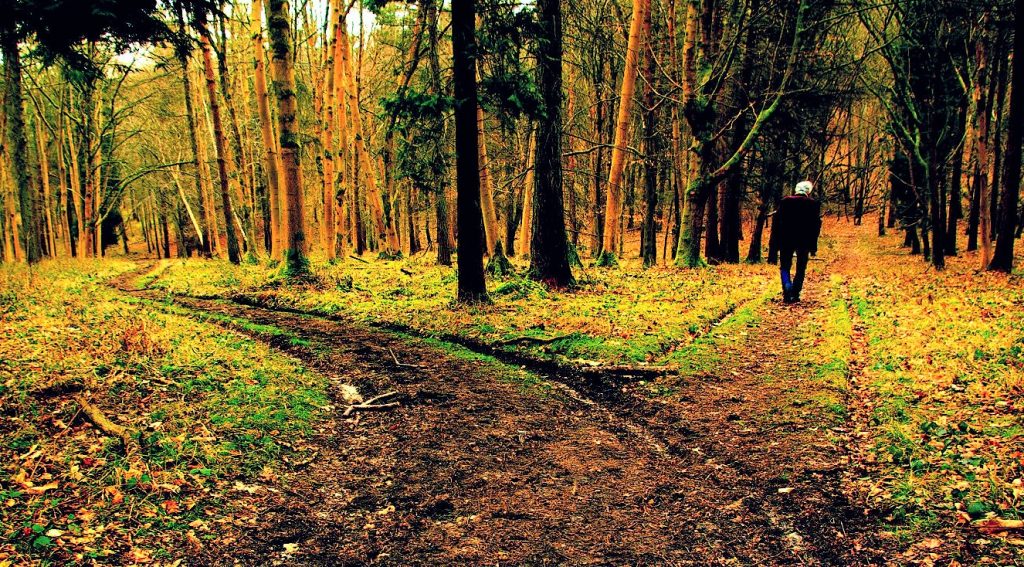
Two snippets of poetry came into my head late last night. Funny how that can happen when sleep escapes us in the early hours. Together, I think they have the makings of a really interesting conversation.
The first is from J.R.R. Tolkien’s The Fellowship of the Ring:
All that is gold does not glitter,
Not all those who wander are lost;
The old that is strong does not wither,
Deep roots are not reached by the frost.
Speaking of frost, the second is from beloved American poet Robert Frost’s “The Road Not Taken”:
Two roads diverged in a wood, and I—
I took the one less traveled by,
And that has made all the difference.
With these two pieces of verse in mind, we’re going to talk about what these ideas mean to us. What does it mean to wander? And in what context? We use a phrase like “letting your mind” wander all the time, but what does that connote? In short, what do we think about the idea of wandering, whether in our minds or in the wilderness?
And what about the idea of taking the road less traveled? What does that idea bring to mind for you? Is this something that you can say is part of your own personal experience, or your own personal journey? Have you ever taken the less-traveled road, and how did that turn out for you? Finally, because this is Pub Theology after all, how does faith play into these notions? Both wandering and the less-traveled road suggest risk, since we don’t know where those paths lead. Does faith make that risk easier to bear?
We’ll talk about all of this and likely more in our conversation tomorrow evening starting at 7pm at Casa Real in downtown Oxford. Join us!